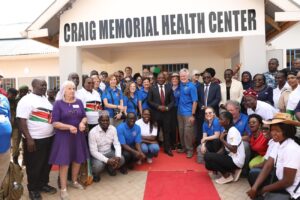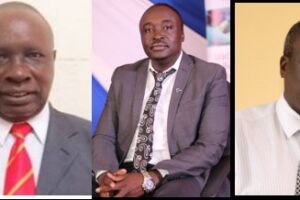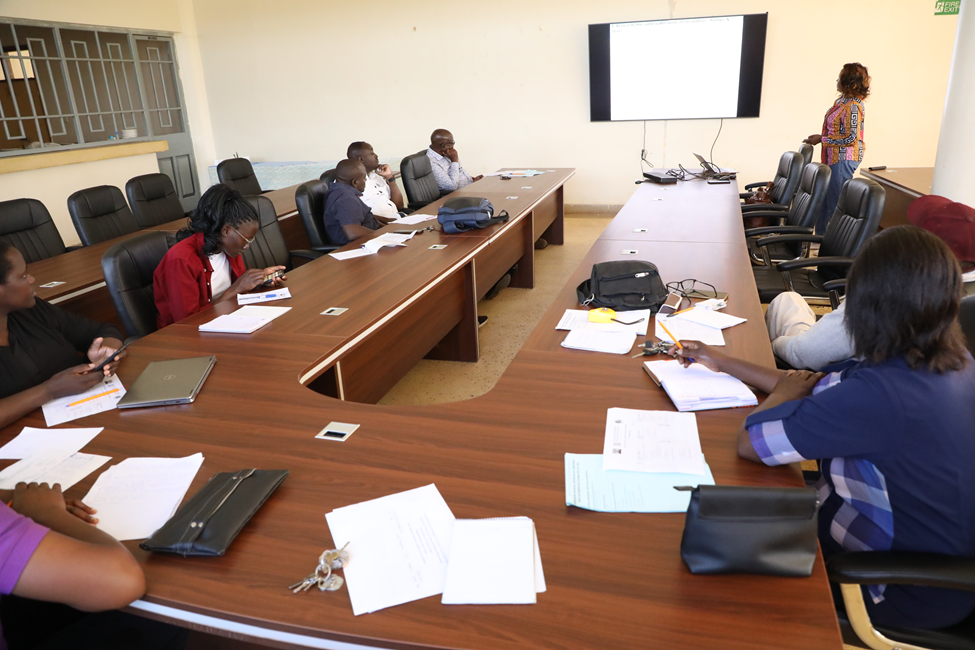
MMUST’s Disability Mainstreaming Committee Gains Expertise to Drive University Inclusion and Stakeholder Access
Masinde Muliro University of Science and Technology is continuing its efforts towards creating a fully inclusive campus environment. On 20th and 21st November, 2025, the University’s Disability Mainstreaming Committee, operating under the Directorate of Aids Control, Gender, and Disability Mainstreaming, successfully underwent an intensive disability inclusion audit training. The training equipped the members with knowledge and skills required to systematically assess and enhance accessibility across all university infrastructure and operations. It was facilitated by an officer from the National Council for Persons with Disabilities (NCPWD), Ms. Jane Wamugu.
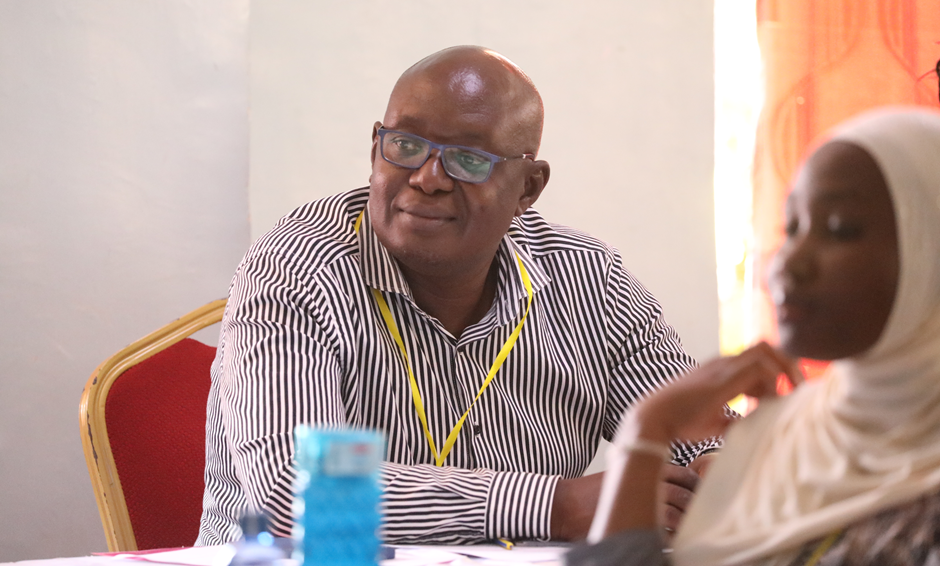
The Director Aids Control, Gender, and Disability Mainstreaming- Prof. Benedict Alala at a past event.
Speaking during the official opening of the event, the Director Aids Control, Gender, and Disability Mainstreaming- Prof. Benedict Alala stressed on the purpose of training, saying that it will provide the committee members with an in-depth understanding of the new Persons with Disabilities Act No. 4 of 2025 and the international standard KS ISO 21542, which guides their day to day advocacies and efforts towards ensuring MMUST meets all mandatory national and global accessibility benchmarks.
“It is important for us as a Directorate to be able to conduct our own audits. It will help us to transform our simple advocacy into professional, compliant actions that will allow us to measure MMUST against national law and international standards. When we get this right, we will ensure that we target resources efficiently for immediate, measurable impact across the campus,” said Prof. Alala.
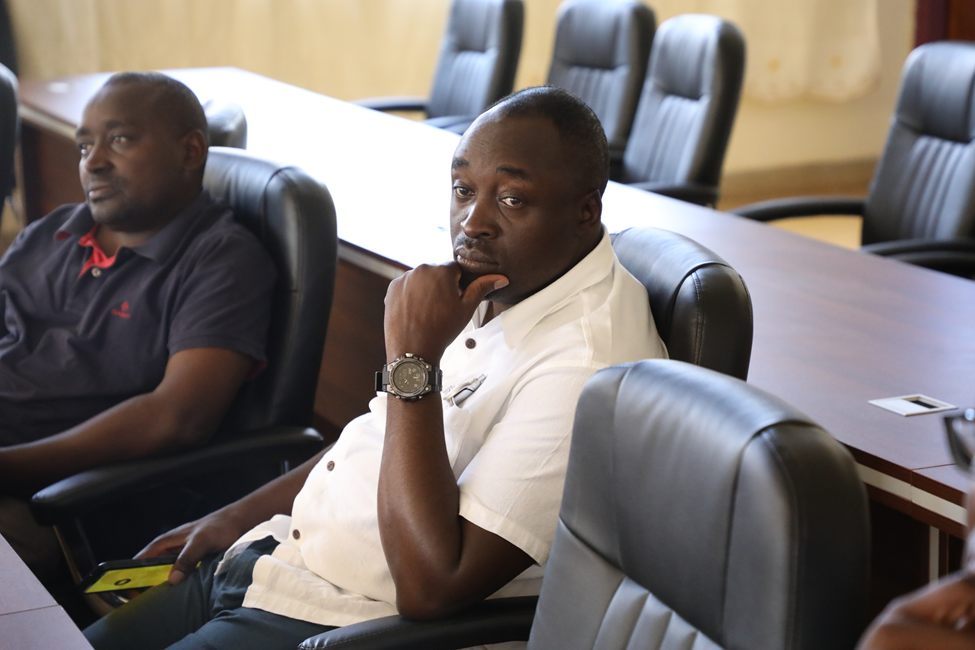
The Chairperson of the Disability Mainstreaming Committee, Prof. Francis Orata (Left) keenly follows discussions during the training.
Similarly, the Chairperson of the Committee, Prof. Francis Orata emphasized MMUST’s commitment to tangible improvement. “We are keen on improving our institution and the community to ensure that issues of disability mainstreaming are addressed. We are prioritizing the correction of easily rectifiable, high impact issues. The simple fixes that are doable and reachable, which will help us to enhance the dignity and ease of life for PWDs,” he stated.
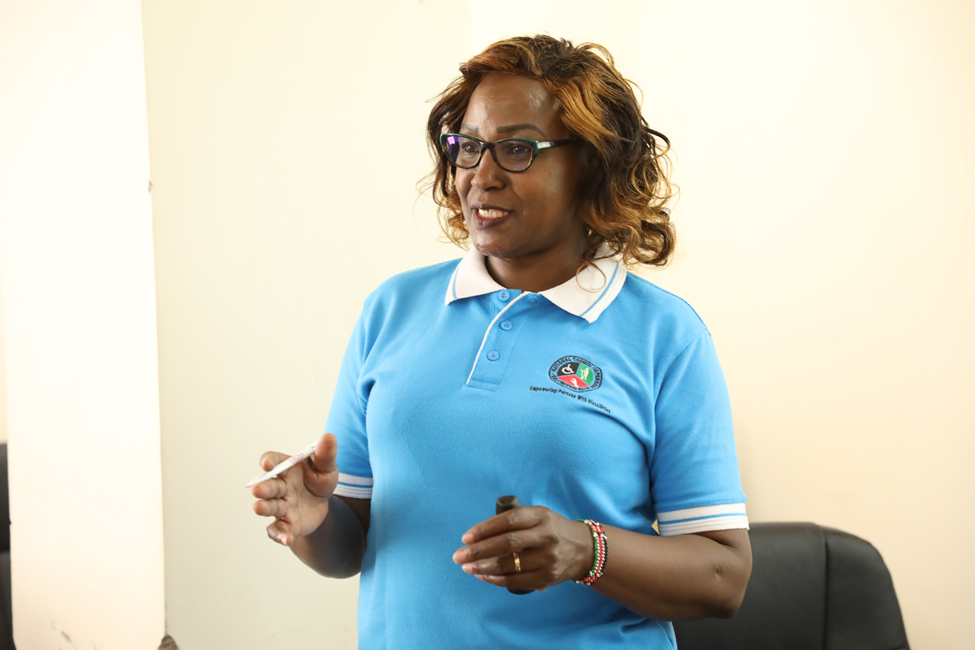
Ms. Jane Wamugu, an officer from the National Council for Persons with Disabilities (NCPWD), during the training.
Notably, Ms. Wamugu guided the trainees through the legal and regulatory frameworks including the new Persons with Disabilities Act No. 4 of 2025 and the international standard KS ISO 21542. She also addressed the issue of the built environment accessibility, pointing out the requirements on achieving equitable access through same entrances, paths (horizontal and vertical circulation), and the use of the same rooms, equipment, and facilities. In addition to this, Ms. Wamugu took the participants through the essential safety measures, focusing on accessible toilets, sanitary facilities, and clear exits and evacuation routes; as well as the need to provide important information through at least two sensory formats.
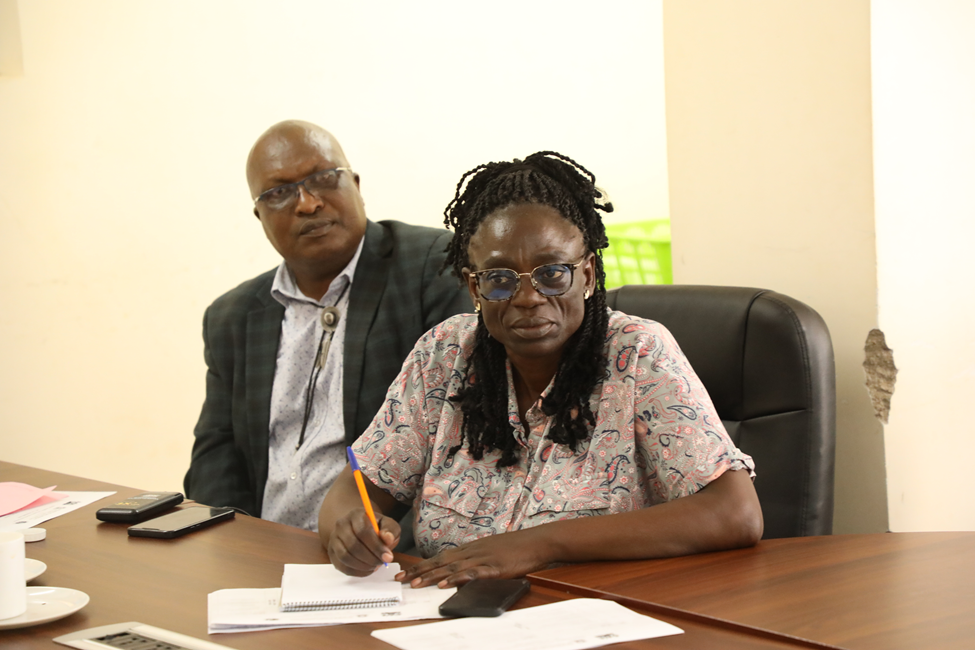
A section of participants keenly follow discussions.
The training featured a mock accessibility audit, which was conducted by the participants under the guidance of the lead trainer, putting their new knowledge immediately into practice. It is without doubt that MMUST is keen to ensure all its stakeholders can fully access and participate in university life.
By Caren Nekesa
Photos by shiundu Masafu


